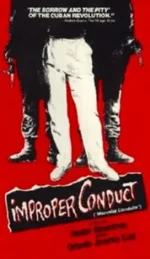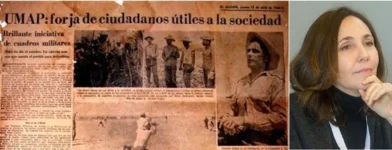- Joined
- May 13, 2010
- Messages
- 5,735
- Reaction score
- 844
- Location
- Los Angels, USA
- Gender
- Male
- Political Leaning
- Slightly Conservative
Brenda was sentenced to 14 years in prison for participating with thousands of people that took to the streets in Cuba on July 11, 2021, to demand, among other things, the improvement of people’s quality of life and guarantee citizens’ rights. Parts of the LGBTQ community joined the marches, since they had particular reasons for protesting that were in addition to the protesters’ general demands.Brenda Díaz among hundreds arrested on July 11, 2021
Published 2 weeks ago on July 11, 2023
By Michael K. Lavers
Brenda Díaz (Photo courtesy of Ana María García Calderín/Tremenda Nota)
A transgender woman with HIV who participated in an anti-government protest in Cuba on July 11, 2021, remains in prison two years later.
Authorities arrested Brenda Díaz in Güira de Melena in Artemisa province.
The Güira de Melena protest was one of dozens against the Cuban government that took place across the country July 11, 2021. Díaz is among the hundreds of people who were arrested during the demonstrations.
A Havana court last year sentenced García to 14 years in prison. She appealed her sentence, but Cuba’s People’s Supreme Court upheld it.
Yoan de la Cruz, who is gay, used Facebook Live to livestream the first July 11 protest that took place in San Antonio de los Baños in Artemisa province. The same Havana court that sentenced Díaz condemned De La Cruz to six years in prison, but he was released in May 2022 and placed under house arrest for five years.
Click link above for full article.
Video of trans women who joined the protests in Cuba
(23) Las mujeres trans que se unieron a las protestas en Cuba - YouTube
Brenda was rape the first day the Castroist communist regime put her into the men’s pavilion on the Güines prison, despite the fact that that prison has a pavilion for women.




